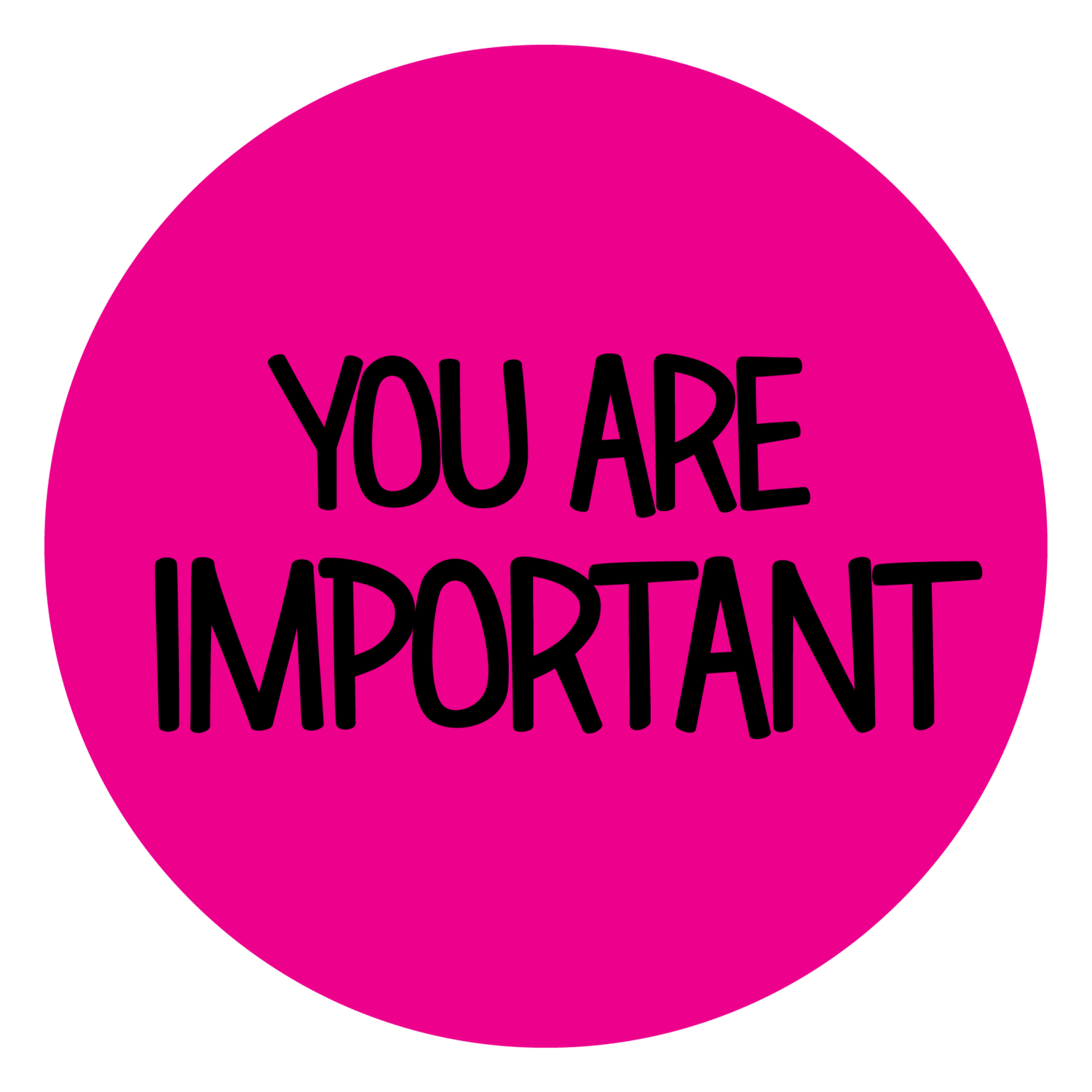Tonglen
I am in the process of reading the book, ‘When Things Fall Apart: Heart Advice for Difficult Times” by Pema Chödrön. The concepts in this book are so profound, I often need to take several days and reflect before I move on.
Earlier this week, I read a chapter that discusses Tonglen. Tonglen is a meditation practice where you exchange feelings with one another, usually breathing in suffering and sighing out relief. It’s a practice where instead of running from painful emotions, you run toward them.
I started the You Are Important Project newsletter to create a safe space away from all the bad news we are fed and to spread ideas and concepts that are positive, affirming, and uplifting. At first glance, Tonglen may seem like the opposite of what this newsletter is all about. However, I think this practice is exactly what we need when we inevitably return to our timelines and news channels riddled with painful stories about the world.
Suffering is an inevitable part of life. We all suffer in one way or another. The world is not always fair and just. We may cower at the sight of child abuse, starvation, disease, or homelessness. We look away. It’s too painful to look a homeless person in the face who is begging for money on the street. It’s painful to see starving children, bruised, and dirty. I look away, too. It is painful.
It’s painful because this is part of the human condition and inevitably it is part of us. Our experiences in this life can be so vast. There are people out there right now who are suffering immensely and endured greater trauma or injustice than we can imagine. Tonglen is a practice where we can look at it and lean into it. We may not be able to end all suffering but we can open our hearts and have compassion. With this practice, we can create a space of healing for ourselves and others.
There’s this YouTube channel, Soft White Underbelly, where various homeless people living in skid row in Los Angeles are interviewed. The stories are absolutely heartbreaking. Most people interviewed have never had a stable support system. They have faced abuse, neglect, and manipulation from everyone they trusted. They have been ridiculed, ostracized, and beaten. Their homeless status makes them vulnerable targets for violence, theft, abuse, and murder. Their whole lives are manifestations of suffering. When I watch these interviews, I am humbled. I can’t imagine what it would be like to live everyday stripped of my basic needs and safety and being rejected from society as a result.
In the book, Pema mentions a friend who spends time helping homeless people. His reasoning? He says by looking after the rejected parts of society he is looking after the rejected parts of ourselves. Wow.
Why is it so hard to look a human being in the eye who is desperate, hungry, and suffering? What if that were us? It is us! We all share this human condition. When we turn away from suffering and pain, we are turning away from that within ourselves.
Tonglen comes in handy here. We don’t have to do everything to save the world, but we can practice compassion and open our hearts. We can create a space of relief and healing with our presence. We may not have much money or time to give, but this is always available to us.
Breathe in their (or your pain) pain. Hold it in. Transform it and breathe out relief.
I do not know the unimaginable suffering many homeless people face. But my heart swells up with sorrow and compassion now.
What feelings do we immediately reject and push away because they are too painful? What if we faced them? What would happen? I believe the ability to face painful emotions and the rejected parts of ourselves (and society) with compassion is the most courageous thing we can do. If more of us did this, the world would be a safer and better place to live.
It goes to the concept I reach for when I am feeling overwhelmed with the state of the world— it starts with you. You can be the light. You can open your heart and be a presence for love and goodness, even when you want to run away. Shine light on that darkness.
